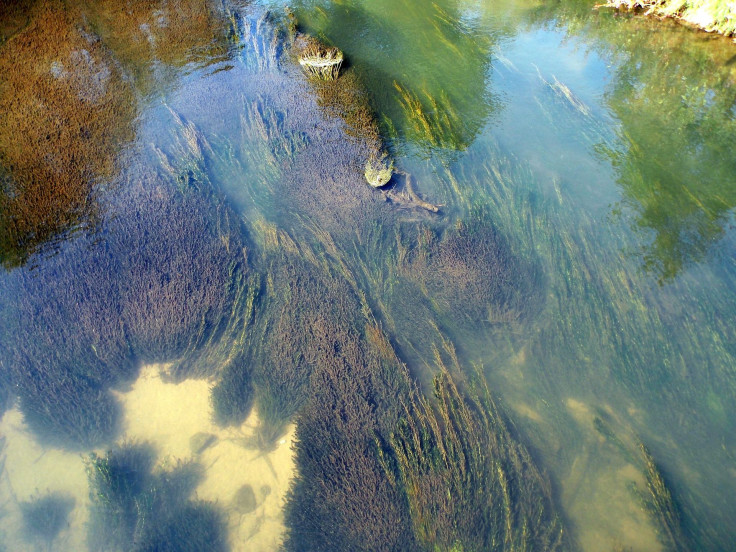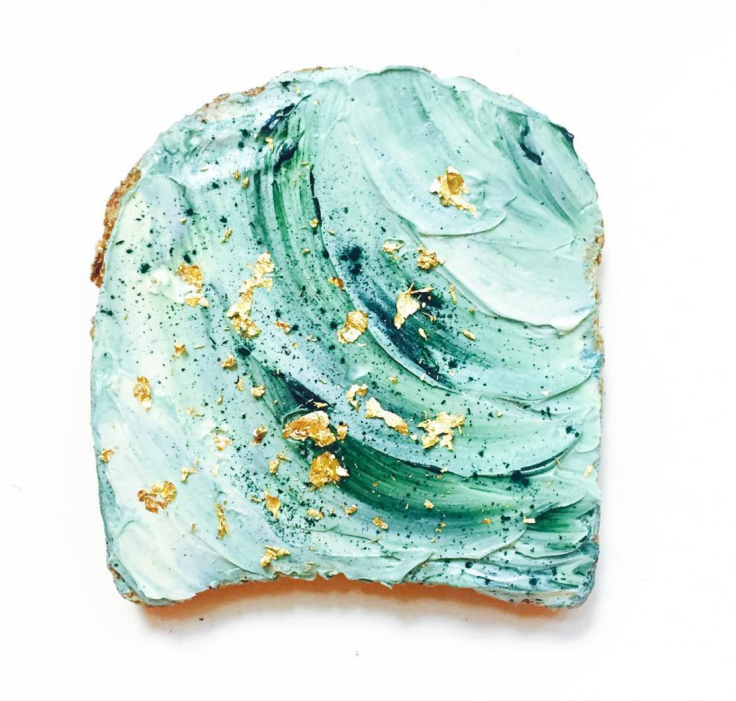5 Potential Health Benefits Of Blue Green Algae, The Newest Food Craze

The latest Instagram food trend isn’t an outrageous cake-topped milkshake or a rainbow-colored bagel. Instead, social media is going crazy over blue green algae toast, or Mermaid Toast, as creator Adeline Waugh of IG account Vibrantandpure calls it.
Read: Essential Oils That Kill Bacteria: How To Use Lavender, Cinnamon, Tea Tree And More
According to Waugh’s post, blue green algae powder was mixed with almond milk cream cheese for the ocean-inspired creation. Mermaid Toast is undoubtedly eye catching, but what exactly is green algae and why would you want to eat it?

First, it’s not really algae, but a type of plant-like bacteria that grows in fresh and salt water. Blue green algae is sort of a general term for the group of organisms that includes several varieties including Spirulina (which you’ve probably heard of). According to the U.S. National Library of Medicine, blue green algae has been used as food or medicine for centuries, with Spirulina dating back to the 14th century in Aztec diets. However, there’s not a lot of scientific research to fully back using this supplement, but here are five potential benefits:
It’s Full Of Protein
According to the University of Maryland Medical Center, amino acids make up 62 percent of spirulina, making it a rich source of protein. It’s often used as a nutritional supplement, but the university says a large quantity is necessary compared to other protein sources like nuts, whole grains and meat.
It’s Full Of Vitamins
FitDay reports that blue green algae has more than 64 vitamins and minerals. A few include vitamins A, C, E, B12 and B6 as well as calcium and magnesium. The organism is also rich in antioxidants, which are vital in preventing cell damage.
Read: Eating These 5 Foods Will Lower Your Stress Level
It Might Ward Off Infections
This has not been proven to work on people, but test tube studies indicate that spirulina can fight against herpes, the flu and HIV. Of course, this is not an actual course of treatment with scientific backing, but blue green algae could play a role in developing new medications.
It Might Help With Liver Damage
The University of Maryland writes that there is some evidence that spirulina could help fight liver damage for those with hepatitis, but further research is needed.
It Might Lower Inflammation
A report in the Journal of Medicinal Food suggests that blue green algae can prevent inflammation and oxidative stress, which are tied to age-related diseases and cancer.
See Also:
Omega-3 Fatty Acids Could Minimize Air Pollution Damage, Says New Study



























